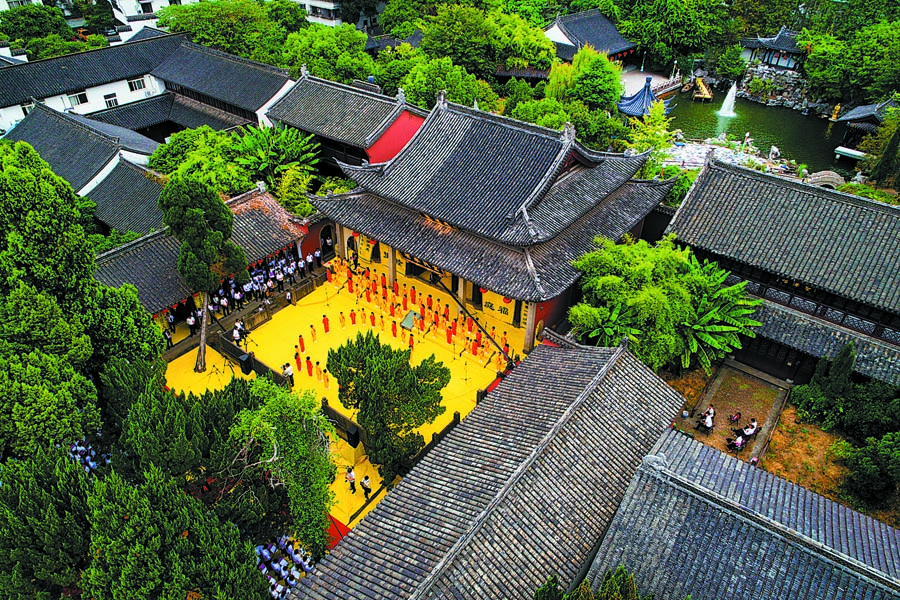

The Quzhou government has tapped into the essence of Confucianism over the years and taken bold steps to spread the culture.
Government officials have taken the lead in restoring the practice of ancient rituals, such as bowing with both hands folded in front to show mutual respect and proffer best wishes, or to bid farewell.
Free trips to more than 100 scenic spots in the city have been offered to travelers worldwide and the amount of public space has been increased to enhance their experience and increase the opportunity to interact with Confucianism at the temple.
Last year, the Quzhou authorities planned out the temple culture and tourism zone that will bring together 10 major local scenic spots, including the ancient city wall and Xin'an Lake. The zone is expected to cover an area of more than 3.5 square kilometers and is aimed at integrating local ancient city culture, sports, leisure and ecology.
To date, more than 5 billion yuan has been put in to improve infrastructure and renovate the facilities within the zone.
An international culture exchange center for the game of Go, an immersive art museum, standardized sign boards and toilets have all been put into service.
The tourist service center, a historical block, a theater and an academy of classical learning are all under construction and will be completed soon. Boating experiences will also be available shortly.
Kong Lingli, a 76th generation descendant of Confucius, is looking forward to the completion of the project.
He relocated to Quzhou from Ningbo, Zhejiang, and took over the running of the Confucius ancestral temple after his father Kong Xiangkai passed away last year.
Kong Lingli says he believes that it's important for the culture to take root among the following generations before cultural revitalization can be achieved.
"The culture and tourism zone will be an effective approach to make that happen," Kong Lingli says.
He has been popularizing Confucianism among youngsters in schools in Quzhou and has carried out a program that promotes the study of The Analects of Confucius. To help upgrade the temple zone, he has also developed new study tours that provide an explanation of the thoughts of Confucianism and offers the appreciation of an ancient ginkgo tree, with a history of more than 500 years, which is located at the temple.
He has also come up with creative cultural products featuring temple-themed elements, including ginkgo nut cake and pancakes imprinted with the words of Confucius.
"The idea is to construct a channel where tourism can help decode the cultural gene of Confucianism," he explains.
Jin Feng, a scenic spot rating expert, says the construction of the temple culture and tourism zone is an innovative practice to promote the culture of Confucianism in southern China.
"Outstanding culture shouldn't be hidden away on a shelf," Jin says. "Only through utilization and innovative development can it be more effectively protected and carried forward."
The temple zone will also complement top natural landscape destinations in the region, including Huangshan Mountain and Qiandao Lake, to make for a diverse travel experience, experts say.